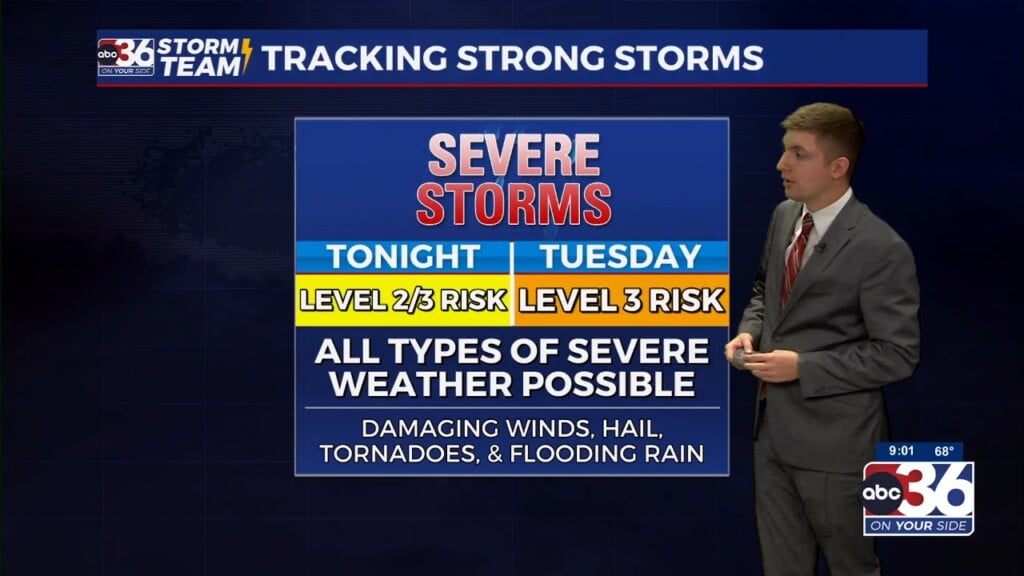We are talking about Tourette's and a new exciting therapy that is coming down
the pipe. How this study is going to work?
Dr. Kompoliti: This is a medication that is already on the market that has been
used for psychiatric diseases like schizophrenia or depression and we are
trying to prove that it works in Tourette's. What's totally novel about this
study is that this is a pill that you take only once a week and this is
exciting because medications that you take every few weeks, every week, or a
few weeks are usually injectables. And this is a new approach to taking
medication by mouth that can last a week.
So, it's an oral medication. You don't have to worry about being injected
especially for kids?
Dr. Kompoliti: No, it's not injected and it is not a shot. It is taken once a
week which is convenient. It increases compliance. And takes away the dynamic
of having to argue about your medication, about whether they have taken their
medications, or who is responsible about the medication.
So this is being used for other psychiatric disorders. How do we think this is
going to affect kids with Tourette's?
Dr. Kompoliti: It's going to work for tics because it blocks dopamine receptors
in the brain.
Will it work for many different psychiatric disorders as well?
Dr. Kompoliti: Yes. A lot of these medications are not really smart. They are
not very specific to specific areas of the brain, but they can work for
different disorders based on the pharmacology and the way we understand the
neurotransmitters are abnormal in the brain. The brain is hard to study because
you cannot use a biopsy and see exactly what the problem is. So a lot of
times we treat by toning up or toning down certain chemicals in the brain
without having hard proof that this is what the problem is with certain
diseases.
Can you talk about Tourette's overall and what it is like for a child living
with Tourette's?
Dr. Kompoliti: Tourette's is a neuropsychiatric disorder where people have tics
which are abnormal movements or vocalizations. So the patient will have
involuntary movements or make noises. This is biological. It is outside their
will and they can suppress it to some degree, but then they will have this
build up where they have to let it out and it becomes more intense the more
they try to suppress it. This usually starts in childhood around the age of 5
or 6 and fluctuates and gets worse before, a lot times getting better in late
adolescence around 18 or so. And these kids can be stigmatized or have a lot of
social problems. This can be disruptive in school or in work for that; and it
can affect the child's self-esteem. It can affect their ability to concentrate
and do their work or attend school and a lot of times it is associated with
other psychiatric disturbances like, ADHD, OCD, or other issues. That is why I
said it is a neuropsychiatric disorder because the main manifestations are the
tics, but they can have a lot of other problems. This treatment is supposed to
affect the tics, but not the other issues they may have.
But not the vocalizations? So it would treat their involuntary eye twitch, but
not if they are screaming?
Dr. Kompoliti: Oh no, it could affect the screaming because the screaming is
still a tic. Whether they make noises or they make abnormal movements, these
are tics. So we expect it, if it works, to affect both of them. A lot of
people have an exotic impression about Tourette's and they think of people
slurring out obscenities, but the bottom line is people with Tourette's can
have a lot of vocal tics and the obscenities are a very small part of it, less
than 10 percent.
What would be another example?
Dr. Kompoliti: The most common noises they make are throat clearing, coughing,
sniffing, these are the simplest, but they can make animal noises, snorting,
you name it. Sometimes they can repeat words that are out of context, or
syllables, or change words, but they are not necessarily obscenities. The
obscenities, when they are part of the tics, are not directed behaviors. So,
they are kind of incorporated in their speech.
So before now, what have been some of the other treatments to help people
manage Tourette's?
Dr. Kompoliti: Some of the other medications, older medications that block
dopamine which can be associated with a lot of problems.
Like what?
Dr. Kompoliti: Like weight gain, and sometimes emergence of further involuntary
movements, sometimes cardiac problems, sleepiness, fatigue. It is a very big
decision for parents to start their kids on these medications because they are
strong and they have some serious side effects.
Are there any oral medications out there, they are just not daily?
Dr. Kompoliti: Yeah, they are oral.
Are there daily?
Dr. Kompoliti: There are daily ones, yeah. We believe that the newer ones may
be easier to tolerate and have fewer side effects in terms of the sleepiness
and the weight gain which are the most common problems.
So not gaining as much weight?
Dr. Kompoliti: And being less sleepy at school because that defeats the
purpose. If you take somebody who has problem at school, you take the tics away
and then you make them sleepy, or you make them gain weight, they can attend
school and you give them one more reason to be teased.
Is Tourette's ever something that just goes away on its own?
Dr. Kompoliti: Yes. A lot of times it can go away on its own, or once you hit
18 years old or so. And that is something we usually talk about with the
parents and the kids: that there is a light at the end of the tunnel and there
is hope, you just have to go through a hard childhood. And a lot of times it's
like a maturation disorder and it is going to get better as they are getting
older.
This information is intended for additional research purposes only. It is not
to be used as a prescription or advice from Ivanhoe Broadcast News, Inc. or any
medical professional interviewed. Ivanhoe Broadcast News, Inc. assumes no
responsibility for the depth or accuracy of physician statements. Procedures or
medicines apply to different people and medical factors; always consult your
physician on medical matters.
If you would like more information, please contact:
Lucy Blasucci, RN,
Research Coordinator
Rush University Medical Center
312-563-2900




Leave a Reply